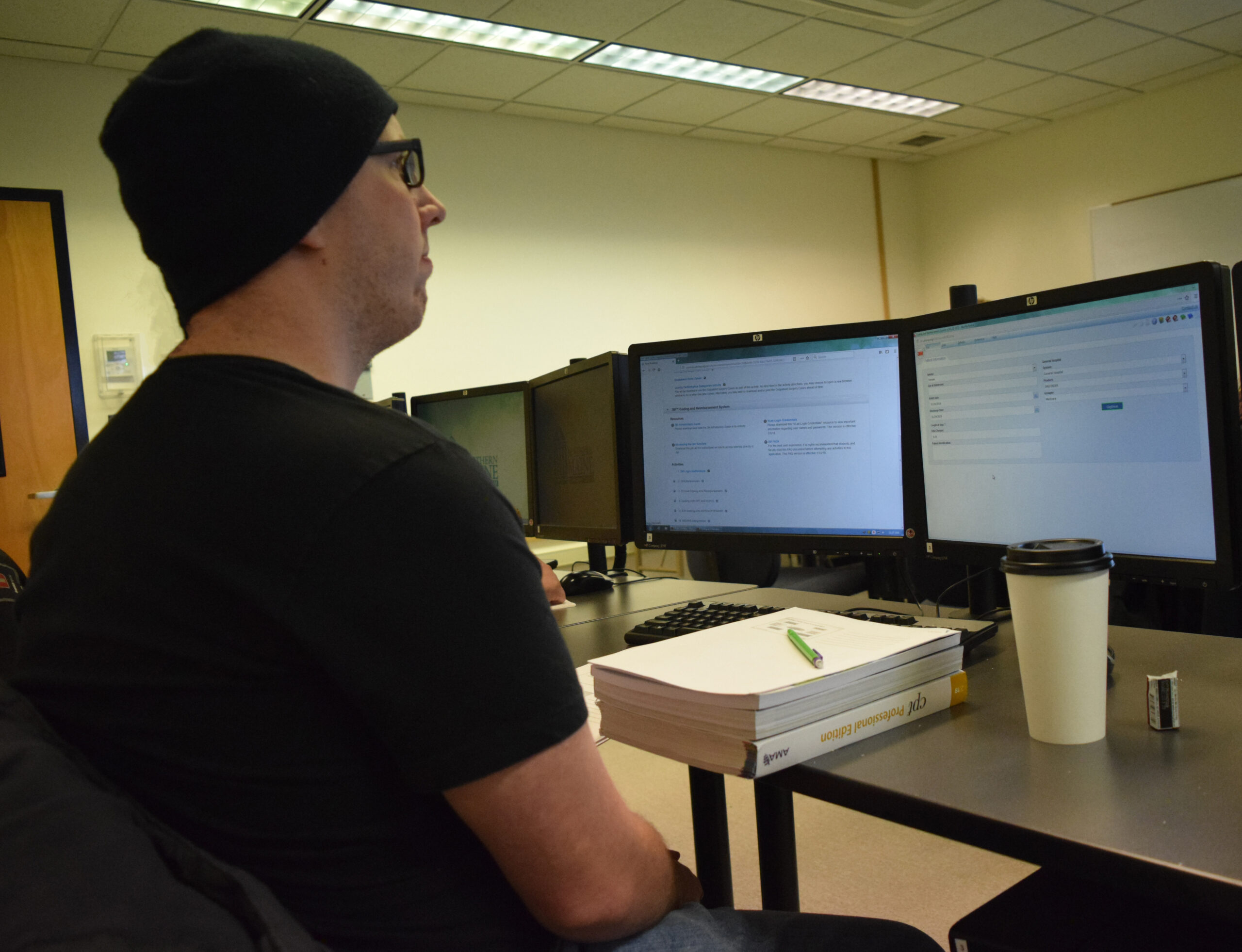
PRESQUE ISLE, Maine — Northern Maine Community College will soon be among the community colleges in Maine that offer a cybersecurity program, joining Aroostook County’s other higher education institutions who earlier launched similar programs.
Starting in fall 2020, a group of at least 15 first-year students will enter NMCC’s network administration and cybersecurity associate degree program — a revision of the college’s previous computer and network technology program.
Though Southern Maine Community College currently offers a cybersecurity degree, NMCC is the first community college in the state to offer a hybrid degree that combines traditional information technology curriculum with cybersecurity.
The change is a natural one, said instructor Reuben Caron, for a program that has been rooted in technology changes over the past several decades.
“The program began with computer electronics and evolved into computer networking and technology,” Caron said. “As the program has evolved to meet industry needs, we knew there was a demand for graduates to be trained in network administration and security.”
With costly network hacks from cyber criminals becoming common nationwide, local company officials, many of whom serve on NMCC’s advisory board, have begun to take note of the importance in hiring individuals who can protect company data.
Students who enter NMCC’s program will take courses such as introduction to computer security, ethical hacking and computer forensics.
Students will take part in hands-on curriculum from the beginning, Caron said. They will build their own computers and private networks that will exist outside of NMCC’s campus network and experiment with cybersecurity tactics. For instance, students will learn how computers might react to a cyber attack and learn how to repair related issues.
Students will end the program certified to work with various networking software, including Microsoft, and learn “ethical hacking” as a means to defend company networks against potential attacks.
“With ethical hacking, you learn how someone might attack your network in order to understand how to better defend it,” Caron said. “Students learn how to hack in a way that doesn’t go beyond ethical hacking and into illegal situations.”
NMCC has also moved the network administration and cybersecurity program from the college’s trade and technical department to the business department and is working toward program accreditation from the Accreditation Council of Business Schools and Programs.
Business department chair Dwight Clayton attributes the transition to that department as one of the reasons why NMCC has seen an increase in student interest for the new program. As with many business and accounting majors, he expects that many students might earn an associate’s degree in cybersecurity before moving on to finish a bachelor’s degree at the university level.
“The great thing about a two-year program is that students can enter the workforce as they continue toward a bachelor’s degree,” Clayton said.
In Aroostook County, the two local universities — the University of Maine at Presque Isle and University of Maine at Fort Kent — recently began their own four-year programs in cybersecurity. UMPI began its program in fall 2019 and ended the spring semester with 10 students ready to continue their studies this coming fall.
The university developed its own cybersecurity program with help from faculty at the University of Maine at Augusta. Fred Strickland, UMPI’s recently hired assistant professor of cybersecurity and computer information systems, said that thus far UMPI has modeled its curriculum on UMA’s program, with an emphasis on small to medium-sized businesses and companies.
“We’re crafting our program to produce individuals that can wear one or two different hats as cyber warriors, information technology specialists or programmers,” Stickland said. “We are exploring possible courses in algorithms, operating systems, cryptography, supply chain security, fraud prevention and forensic accounting.
Strickland noted that UMPI’s program can be an ideal option for students who complete an associate degree like that at NMCC. The two colleges have been in discussions about a potential partnership that would make transferring to the university level much easier for NMCC graduates.
“Our program would serve as a deeper dive into cybersecurity topics for those who complete a two-year program,” Strickland said. “We are teaching our students how to think and solve problems. The challenge in cyber warfare is that the evil actors are one step ahead of the good guys. We want our graduates to be able to think on their feet and come up with solutions to any cyber attack.”
A previous version of this story incorrectly stated that NMCC’s new network administration and cybersecurity program is the first such program at a Maine community college. The program is the first hybrid information technology and cybersecurity program but not the first cybersecurity program.







